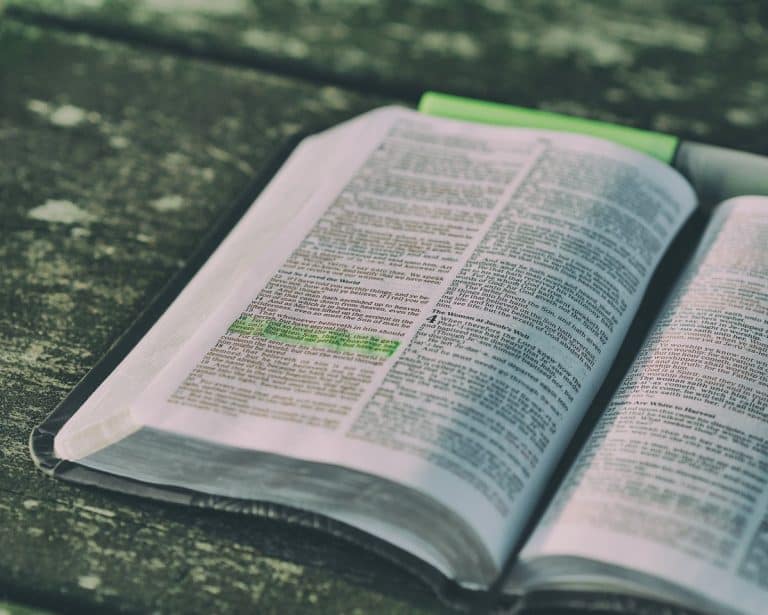I study my scriptures almost every day, though I’ve realized over time that my interpretation of that differs from the understanding of some other members of the Church of Jesus Christ of Latter-day Saints. Some folks I know interpret daily scripture study in the church to mean daily reading of the Book of Mormon, and some of them even put a minimum time limit on the exercise or to them it doesn’t “count.” On the contrary, I take a broad view of what “studying the scriptures” means: sometimes I’m digging directly into the text, sometimes I am reading analysis or commentary or historical context that adds to my understanding of the scriptures, and sometimes I’m discussing the scriptures with someone else. Sometimes, I get more out of really focusing on a few verses instead of trying to cram in a chapter a day, which is why I’m very reluctant to use a timer. Life is busy, and I feel like God sees my efforts and doesn’t tap a Celestial Wristwatch in consternation when I haven’t hit 30 minutes or other arbitrary time each day.
As an adult convert, I did not grow up with the scriptures as part of my life. That said, there are passages of holy text in both the Bible and Book of Mormon that really resonated with me in difficult times in my life and played a role in my conversion. I also appreciate the opportunity independent study gives me to read and form my own opinions and receive my own promptings before I hear the “official” interpretation from the Come, Follow Me manual or Sunday School.
One question I keep wrestling with is: are the scriptures redeemable? I am thankful for important contributions to exegesis that don’t shy away from this question, including those through the lens of queerness, social justice, and other often-marginalized perspectives. But there are passages and what I call meta-choices that defy justification and challenge readers who believe these texts are God’s word.
Let’s start with the meta-choices. Do we believe that what God would proclaim the most important words for our spiritual and moral edification in this life would exclude women and gender minorities so severely? Do we believe in the racism we see from the Bible deriding “Philistines” (which is the same as “Palestinian” and is actually how we still say “Palestinian” in Arabic) so powerfully that it still persists in the English language as an insult today? Do we believe in the racism of the Book of Mormon describing “Lamanites” as savage and wicked and in many ways with complete double standards compared to Nephites? Do we believe that words we are supposed to take as spiritually authoritative would uncritically include slavery, indiscriminate violence against civilians, sexual assault and the taking of women as spoils of war, and more? Shouldn’t the word of an eternal and all-knowing God be more than a “product of its time”? There have always, at every moment in history, been people who stood for what is right. Why wouldn’t God choose them to write a text that avoids dehumanizing and harming entire groups of people, especially the most vulnerable?
On top of those meta-choices, I encounter a passage at least once a week in scripture study where my conscience screams to me that what I’m reading is doctrinally wrong. I find the Holy Ghost often quietly confirms that truth to me later as I struggle with the words and pray about them. My latest was Helaman 13:32-33 (emphasis mine):
“32 And in the days of your poverty ye shall cry unto the Lord; and in vain shall ye cry, for your desolation is already come upon you, and your destruction is made sure; and then shall ye weep and howl in that day, saith the Lord of Hosts. And then shall ye lament, and say:
33 O that I had repented, and had not killed the prophets, and stoned them, and cast them out. Yea, in that day ye shall say: O that we had remembered the Lord our God in the day that he gave us our riches, and then they would not have become slippery that we should lose them; for behold, our riches are gone from us.”
This smacks of prosperity gospel to me, saying that if the Nephites were obedient and accepted the prophets then they would get to keep their riches. I truly do not believe “riches” is a metaphor, as the rest of the chapter’s language discussing their “treasures” and all of the “gold…silver…and costly apparel” they have to spare makes obvious. From what I know of the Lord, the Lord is uninterested in helping rich people preserve their wealth or rewarding rich people with continued richness. On the contrary, the overwhelming evidence is that those who are wealthy have a greater obligation to give what they have to those in need. Being obedient to God is going to cause the rich to “lose” their riches any way in the sense that their “riches are gone from [them],” but those riches should be gone from them because they went to a better cause: alleviating the suffering of God’s children and building God’s kingdom. It doesn’t make sense that there’s a scenario where these rich listeners are obedient and keep all their wealth.
The places in scriptures where it’s most obvious of all to me that the text might not be redeemable is where they mention people with disabilities. The healing narratives around disabled people in Christian holy text have caused incalculable harm over the ages and continues to do so today. Although I have tried to make sense of what (if any) good can be drawn from those stories, I don’t blame anyone for saying the healing narratives are inherently ableist.
These are just a few examples of the types of passages that I end up chewing on for days or weeks or months or even years. And it makes me wonder: why would holy text that should be “plain and simple” and accessible to all of God’s children for our knowledge and wisdom have passages like this that are misleading or wrong or so painful for the most marginalized people? Why would there be so many verses that seem designed to be misinterpreted from the start? Why are there so many contradictions that make the scriptures less accessible and force more people to rely on church leaders or others to explain the “correct” interpretation, weakening individual members’ direct relationship with holy text and with God?
For now, I find the scriptures redeemable enough to keep reading every day. I think it benefits me not only to find passages that are comforting and feel true but to find sections that challenge me and anger me and help me refine what I believe through my opposition to them. At the same time, I completely understand people who have been burned by scriptures over and over again (or had scriptures weaponized against them) deciding that the scriptures are irredeemable. I sometimes wonder if they’re right. What do you think? What is your relationship with the scriptures?






6 Responses
As part of my faith transition, I needed to be the one who “defined scripture” for myself. What did I find inspirational, useful, and not harmful?
Eventually, I came to the conclusion that the “scriptures” were “writings of men” with a more male point of view. Deborah Tannen (a linguist) pointed out that men “tend to speak [and likely think] in hierarchy” and women “tend to speak [and likely think] in social networks” – networks in relation to others.
So, it makes sense that the Bible and (to a degree) the Book of Mormon deal a lot about “hierarchies” between groups and between individuals. In a sense, these texts are an ongoing dispute about “who is better than whom” in the hierarchy and “who has power from God” vs who doesn’t. To a degree, “who has what power from God” is also a related question – with “nurturing being a divine power” that women have – but women not presiding in their homes because of that power.
The social justice conversations come in when the people as a whole have gone too far the other way – become too exclusive, leaving massive groups of people outside of the balance of power. Those passages are more to remind humans to treat the “less abled” at least humanely.
This is really profound and thought-provoking. Thank you for sharing this framework.
This is well written and thought provoking. I also love your approach of reading a wide variety of sources.Over the years, I have had more of these questions arise. Reading the bible is easier for me to see what seems to be divine speaking and what is from me. As for the questions about contradictions, I have learned a lot from Dan McClellan’s Instagram about contradictions. It’s harder for me with the Book of Mormon – I grew up in the 80s when the BoM was pounded into church members. Right now that book carries too much baggage for me; someday I think reading The Book of Mormon for the Least of These by Fatimah Salleh and Margaret Olsen Hemming.
Thank you so much.
For me, I’ve learned it’s more important to read what I feel God wants me to read. When I was in the middle of a difficult pregnancy, I had a strong prompting to read “The Gift of Giving Life” for my scriptures. It was exactly what I needed at the time. When we first started doing Book of Mormon come follow me, I felt that I needed to be reading the book of Daniel (of all things!). That taught me that Come Follow Me is a resource, and you use resources when you need help. I didn’t need help, so I didn’t need to use the resource.
I love this approach!